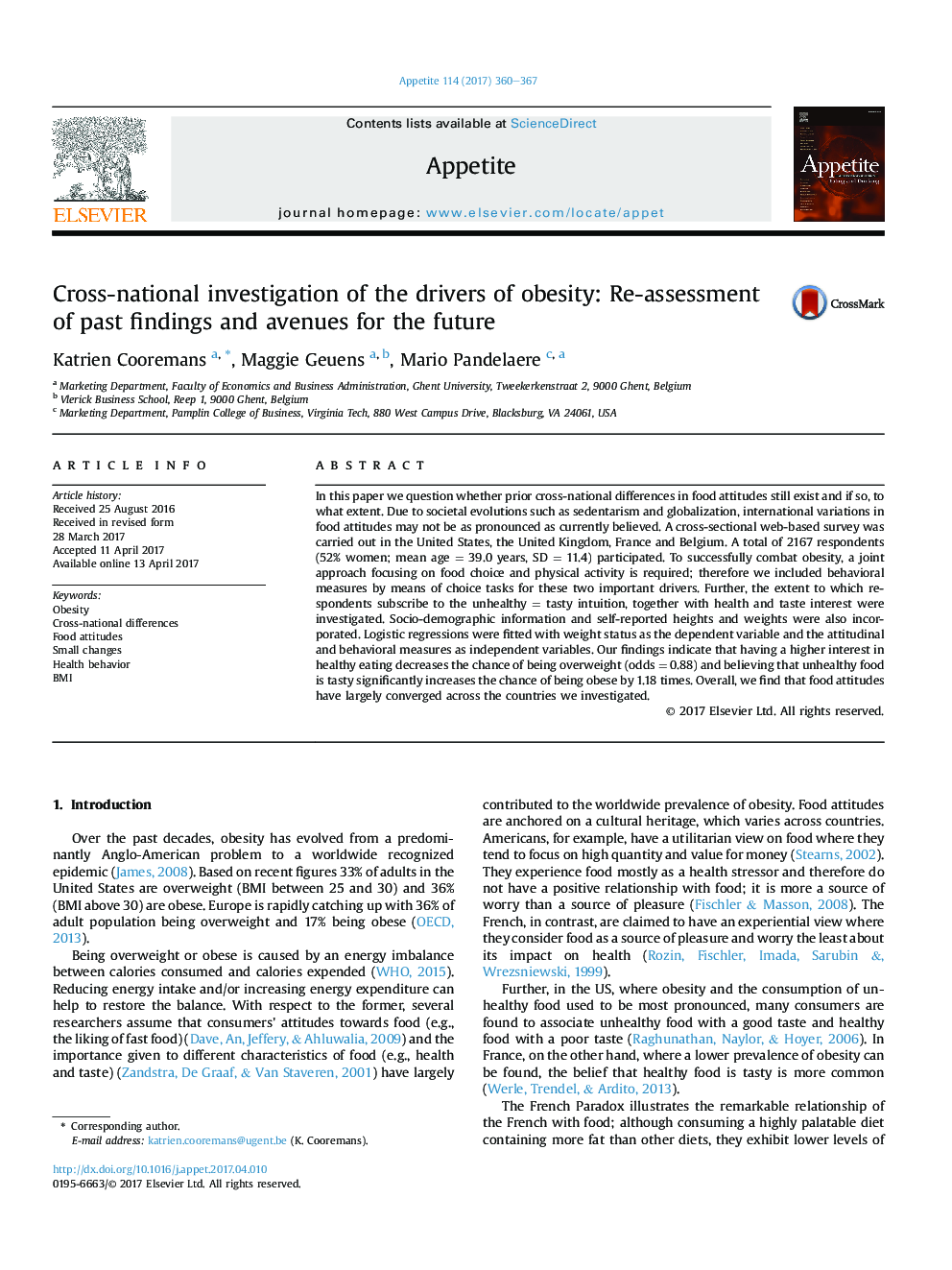| Article ID | Journal | Published Year | Pages | File Type |
|---|---|---|---|---|
| 5044330 | Appetite | 2017 | 8 Pages |
In this paper we question whether prior cross-national differences in food attitudes still exist and if so, to what extent. Due to societal evolutions such as sedentarism and globalization, international variations in food attitudes may not be as pronounced as currently believed. A cross-sectional web-based survey was carried out in the United States, the United Kingdom, France and Belgium. A total of 2167 respondents (52% women; mean age = 39.0 years, SD = 11.4) participated. To successfully combat obesity, a joint approach focusing on food choice and physical activity is required; therefore we included behavioral measures by means of choice tasks for these two important drivers. Further, the extent to which respondents subscribe to the unhealthy = tasty intuition, together with health and taste interest were investigated. Socio-demographic information and self-reported heights and weights were also incorporated. Logistic regressions were fitted with weight status as the dependent variable and the attitudinal and behavioral measures as independent variables. Our findings indicate that having a higher interest in healthy eating decreases the chance of being overweight (odds = 0.88) and believing that unhealthy food is tasty significantly increases the chance of being obese by 1.18 times. Overall, we find that food attitudes have largely converged across the countries we investigated.
